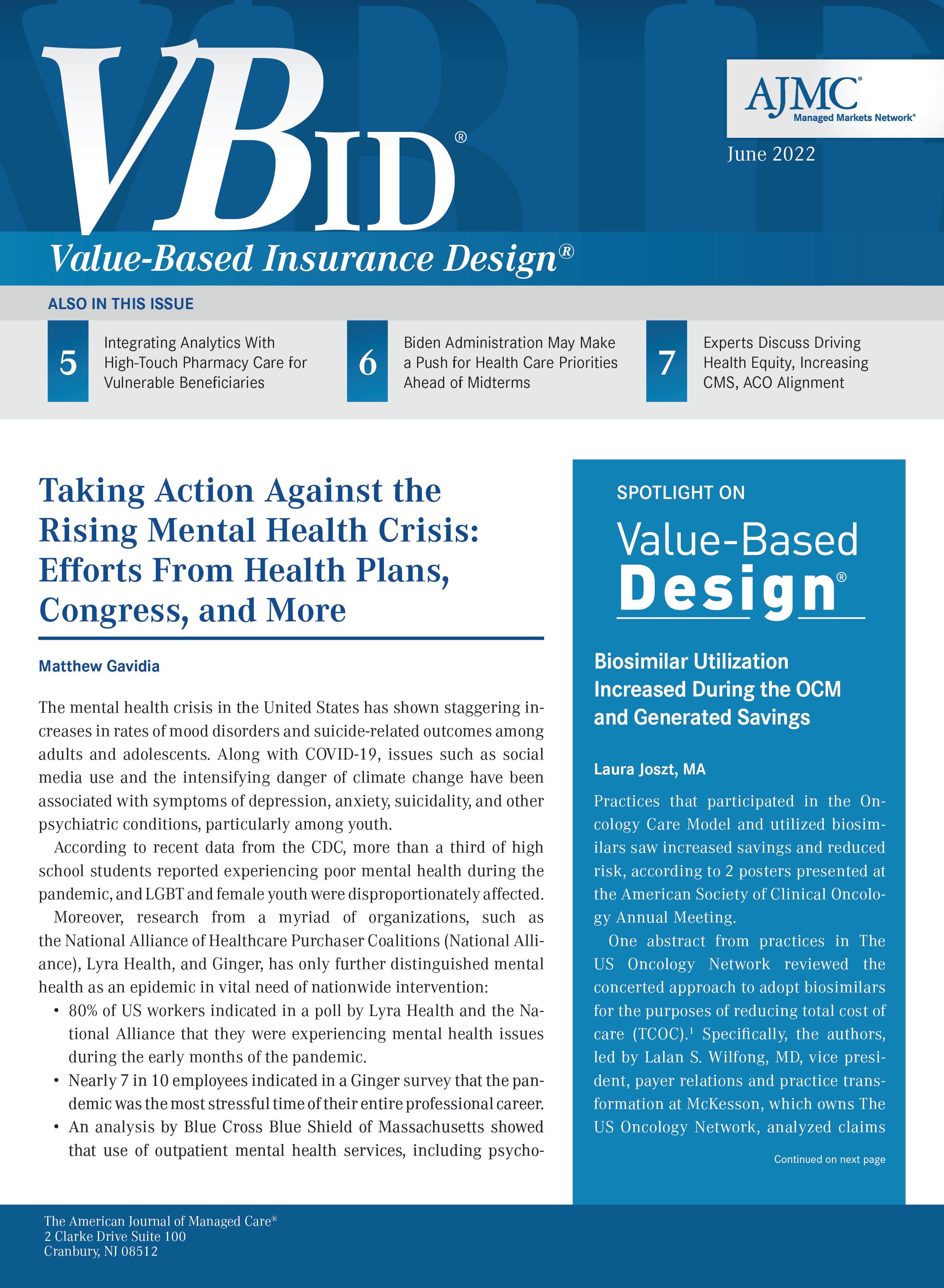- Center on Health Equity & Access
- Clinical
- Health Care Cost
- Health Care Delivery
- Insurance
- Policy
- Technology
- Value-Based Care
Biosimilar Utilization Increased During the OCM and Generated Savings
Abstracts presented at the American Society of Clinical Oncology Annual Meeting evaluated biosimilar use in practices participating in the Oncology Care Model (OCM) and estimated the savings as a result of substituting these agents for more expensive reference products.
Practices that participated in the Oncology Care Model and utilized biosimilars saw increased savings and reduced risk, according to 2 posters presented at the American Society of Clinical Oncology Annual Meeting.
One abstract from practices in The US Oncology Network reviewed the concerted approach to adopt biosimilars for the purposes of reducing total cost of care (TCOC).1 Specifically, the authors, led by Lalan S. Wilfong, MD, vice president, payer relations and practice transformation at McKesson, which owns The US Oncology Network, analyzed claims data from 14 practices for performance period 8 (PP8) of the OCM.
PP8 ran from January 2, 2020, to July 1, 2020. The 6-year OCM has a total of 11 performance periods (PPs), with the final PP ending June 30, 2022. Currently, there is no replacement for the OCM planned.
Use of bevacizumab, trastuzumab, and rituximab biosimilars increased from previous PPs, they found. In PP6, biosimilar use for all 3 therapeutic classes was 0%, which increased modestly to 5% for bevacizumab biosimilars, 4% for trastuzumab biosimilars, and 2% for rituximab biosimilars in PP7. In PP8, there was significantly increase to 43% for bevacizumab biosimilars, 33% for trastuzumab biosimilars, and 41% for rituximab biosimilars.
The adoption of biosimilars resulted in $6.61 million in savings compared with if the more expensive innovator drugs had been used entirely. They concluded that the increased utilization of biosimilars not only helped the practices in The US Oncology Network generate savings in the OCM, but it will increase savings to Medicare.
“We estimate that 100% Network adoption of these three biosimilars could save nearly 1.5% of the TCOC in our Network compared to continued use of innovator drugs,” they wrote.
The other abstract estimated the impact of biosimilar utilization on financial risk to providers in value-based payment (VBP) models.2 They modeled the quantitative methodology of the OCM to apply a simulation approach to oncology VBP models. The authors, led by Jingyan Yang, MHS, DrPH, of Columbia University, examined bevacizumab, rituximab, trastuzumab, epoetin alfa, filgrastim, and pegfilgrastim.
They determined that substituting biosimilars for the originator reduced cost relative to target by a mean of $1200 per eligible episode and the proportion of practices that were above benchmark for eligible episodes was reduced by 33%. The number of practices below target for eligible episodes was reduced by 42% because of biosimilar substitution.
However, these numbers are based on the assumption that substitution of chemotherapy drugs only occurred in patients who were treatment naïve. When the model was changed to remove this assumption, cost savings relative to target increased to $2700 per eligible episode.
“Biosimilar substitution significantly reduces aggregate provider risk in OCM, representing a significant potential intervention for providers to mitigate risk in oncology VBPs both in terms of absolute costs saved relative to target and reduction in risk band relative to payer projections,” the authors concluded.
Reference
1. Wilfong LS, Indurlal P, Dominguez K, et al. Financial impact of biosimilar adoption in the oncology care model for the U.S. Oncology Network. Presented at: ASCO 2022; June 3-7, 2022; Chicago, Illinois. Abstract e18749.
2. Yang J, Chaudhry BI, Yue A, et al. Projected impact of oncology biosimilar substitution from the perspective of provider risk in value-based oncology payment models. Presented at: ASCO 2022; June 3-7, 2022; Chicago, Illinois. Abstract e18836.

